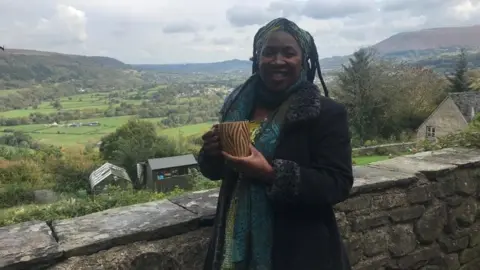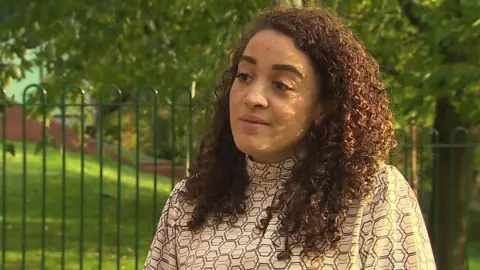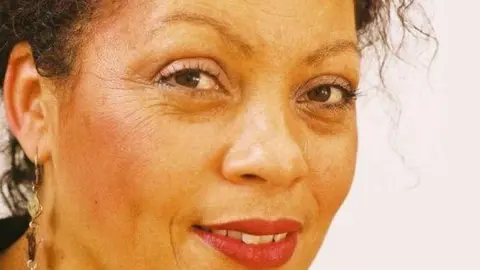Black History Month: How can schools teach black history?
Twenty years after fleeing her life in Zimbabwe, Martha Holman is set to return to teaching, joining a "very low" number of black teachers in Wales.
Now living in rural Monmouthshire, she is completing PGCE teacher training.
While there is more focus on reflecting black and ethnic minority experiences in the school curriculum, she questions how effectively this can be done without a more diverse workforce.
She said being the only black person in a team is initially "a huge challenge".
Professor Charlotte Williams, an academic at Bangor University, is chairing a Welsh Government review of how to improve the teaching of themes relating to black, Asian and minority ethnic (BAME) communities across the new school curriculum.
She said a more diverse workforce is important for young people's sense of belonging and their learning, something Ms Holman echoed.
Role models
"We're talking about introducing a curriculum where they will be teaching, say, Black Lives Matters or Black History Month," said Ms Holman.
"I don't understand how that can be taught in an environment where there are no role models.
"I don't understand how that subject will impact on young learners when they don't have black teachers."

A geography teacher in Zimbabwe, Ms Holman was targeted by the late President Robert Mugabe's government and accused of teaching politics to her students.
After she was beaten up and put in prison, a friend in Carmarthen helped her escape to Wales.
She set up a charity and has gone into hundreds of schools to speak to pupils - but her passion for teaching remained.
She said she feels a connection with pupils.
"I like the fact that they are inquisitive and I like the fact that the moment I talk to them about my background, about being an African, they want to know more about Africa. It's a way of educating them," she added.
'Lack of understanding'

Riah Andrews, an English teacher in Denbighshire, said making sure all pupils get a chance to read authors from different backgrounds helped generate awareness as they grow into adults.
"It's not necessarily that I've experienced any racism or prejudice," she said.
"It's more a case of lack of understanding and awareness.
"If we don't start educating kids about what it's like being in a minority... then it almost shelters them from understanding there are people who are different."
How many BAME teachers are there in Wales?
The Education Workforce Council's latest statistics suggested 1.3% of teachers were from a black, Asian or minority ethnic background - roughly 469 out of 35,171 staff in Wales.
Taking a closer look, 0.2% identified as black/African/Caribbean/black British - equating to around 64 teachers.
In contrast, the latest school census indicated 6.8% of pupils over five are of black, Asian or mixed ethnicity.
 Welsh Government
Welsh GovernmentProf Williams said her group's work for the Welsh Government was aimed at ensuring teachers of all backgrounds can reflect BAME issues in the curriculum.
But for young people from BAME backgrounds, a diverse workforce "is very important in terms of their sense of belonging, in terms of their aspirations for themselves, in terms of their own learning".
"It's very important for us to think about how to encourage more people from those backgrounds into the education workforce in Wales," she added.
The Education Workforce Council said it monitored the profile of school staff, and as part of its work to attract more people to the profession, it placed a focus on certain groups including people from black and minority ethnic backgrounds.
